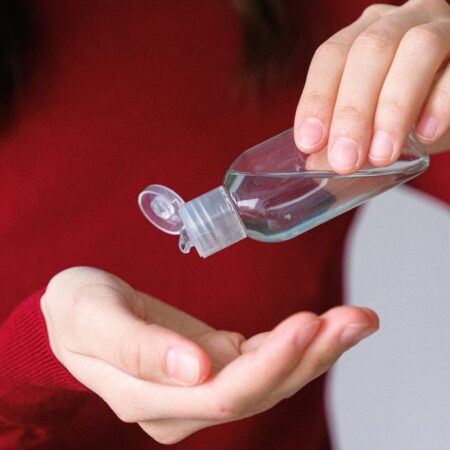
Drinking alcohol to excess can lead to a host of hangover symptoms, including throwing up. While vomiting may make you feel awful, the risks from excess toxins can be damaging to your system. That’s why it’s best to let your body do its thing, while taking steps to prevent complications like dehydrationi XIt is a condition characterized by a lack of adequate fluid in the body, leading to symptoms such as thirst, dry mouth, fatigue, and reduced urine output. It occurs when the body loses more fluids than it takes in, disrupting the body’s fluid balance. . Keep reading to find out why the alcohol you drank made you throw up, and what you can do about it.
Why Drinking Alcohol Makes You Throw Up?

If you don’t overdo it on the drinking, your body (specifically, your liver) neutralizes acetaldehydei XA naturally occurring colorless and flammable liquid or gas with a suffocating smell produced on a large scale by industries. with a substance it makes called glutathione. Your body processes the two compounds, and you’re fine. Except when you drink too much. Then, your liver can’t make enough glutathionei XIt is a naturally occurring antioxidant molecule found in our cells which plays a crucial role in neutralizing harmful free radicals, detoxifying the body, and supporting a healthy immune system. to keep up with what you’re drinking. Eventually, your body realizes the liver isn’t going to be able to keep up with how much acetaldehyde is present and gets rid of it another way — through vomiting.
Quick Tip
Prioritize a nutritious meal before consuming alcohol to slow down alcohol absorption and reduce the likelihood of vomiting
An excessive amount of alcohol may also irritate the lining of your stomach. This, in turn, may cause acid to build-up and make you nauseous. These are a few reasons alcohol may cause you to throw up. However, you can consume certain foods to enhance recovery. Read on.
What To Consume After Throwing Up
Throwing up is your body’s way of ridding itself of a toxin — in this case, alcohol. Instead of stopping yourself from throwing up, it’s best to simply help yourself feel better until your body’s gotten rid of all the alcohol.
Here are some ways to minimize the nausea and side effects from vomiting:
1. Water

After vomiting from excessive alcohol consumption, it’s crucial to rehydrate your body. Drinking small sips of water is recommended to avoid overwhelming your stomach. Start with a few sips and gradually increase the amount as your body tolerates it. Water helps replace lost fluids, prevents dehydrationi XIt is a condition characterized by a lack of adequate fluid in the body, leading to symptoms such as thirst, dry mouth, fatigue, and reduced urine output. It occurs when the body loses more fluids than it takes in, disrupting the body’s fluid balance. , and aids in the recovery process.
2. Oral Rehydration Solutions
These solutions are specifically designed to restore hydration and replenish lost electrolytes and minerals. They are available over the counter at pharmacies or can be prepared at home using specific recipes. Oral rehydration solutions provide a balanced mixture of sodium, potassium, and other essential nutrients that help restore electrolyte balance and promote rehydration more effectively than plain water.
3. Ginger Tea Or Peppermint Tea

Both ginger and peppermint have long been used to alleviate nausea and calm an upset stomach. Ginger contains compounds that aid digestion and reduce inflammation, while peppermint has soothing properties that can ease gastrointestinal discomfort. Brew a cup of ginger or peppermint tea by steeping fresh ginger root or dried peppermint leaves in hot water. Sip it slowly to help settle your stomach and reduce post-vomiting nausea.
4. Bland, Light Foods
As your stomach settles, gradually introduce bland, easy-to-digest foods into your diet. Stick to foods like plain toast, crackers, boiled rice, or boiled potatoes. These options are gentle on the stomach and provide some nourishment without overwhelming your digestive system. Avoid greasy or spicy foods, as they may further irritate your stomach and delay the recovery process.
Pro Tip
Start with small sips of water and gradually introduce clear liquids and bland foods to replenish fluids and aid in digestion without overwhelming the stomach
5. Vitamin B complex

Excessive alcohol consumption can deplete your body’s reserves of vitamin B, which plays a vital role in energy production and overall well-being. Taking a vitamin B complex supplement or consuming foods rich in B vitamins, such as leafy greens, eggs, and whole grains, can help replenish these nutrients. Vitamin B complex supports the recovery process, helps restore energy levels, and contributes to overall health.
6. Avocado
Avocados are rich in potassium, an electrolyte that supports proper muscle function and helps maintain hydration levels. They also provide essential vitamins, such as vitamin K, vitamin C, vitamin E, and several B vitamins, which aid in overall health and recovery. The healthy fats in avocados can help provide sustained energy and promote satiety. Consider incorporating avocado into your recovery meals, such as adding slices to toast or incorporating it into a light salad, to further support your body’s recovery process.
7. Bananas

They are a good source of potassium, an electrolyte that is often depleted after vomiting. Potassium helps maintain fluid balance, supports muscle function, and contributes to overall hydration. Bananas also contain natural sugars, which can help replenish energy levels that may be depleted after excessive alcohol consumption. Eating a ripe banana can provide nourishment and help restore essential nutrients during the recovery process.
8. Watermelon

Watermelon is an excellent choice after throwing up from alcohol due to its high water content, helping to rehydrate the body. Packed with vitamins A and C, it also provides a natural boost to the immune system. The natural sugars in watermelon can provide a gentle source of energy, aiding in recovery. Its light, juicy nature makes it easy to digest, making it a gentle option for a recovering stomach.
Side Effects Of Throwing Up After Drinking Alcohol
Throwing up after drinking can make you feel awful. Here are some potential side effects of throwing up after drinking alcohol:
1. Dehydration

Vomiting can lead to significant fluid loss, resulting in dehydrationi XIt is a condition characterized by a lack of adequate fluid in the body, leading to symptoms such as thirst, dry mouth, fatigue, and reduced urine output. It occurs when the body loses more fluids than it takes in, disrupting the body’s fluid balance. . It can cause symptoms such as dry mouth, thirst, fatigue, dizziness, and decreased urine output.
2. Electrolyte Imbalance
Vomiting can disrupt the balance of electrolytes in the body, particularly sodium, potassium, and chloride. This imbalance can lead to muscle weakness, irregular heartbeat, fatigue, and other related symptoms.
3. Irritation of the Esophagus
Frequent vomiting can irritate and inflame the esophagus, causing discomfort, pain, and potentially leading to complications such as esophagitis or gastroesophageal reflux disease (GERD).
4. Stomach and Digestive Issues

Forceful vomiting can strain the stomach muscles and irritate the gastrointestinal tract, potentially causing nausea, abdominal pain, bloating, and digestive disturbances.
5. Tooth Enamel Erosion
The stomach acid that comes up during vomiting can also damage the tooth enamel over time. This can lead to tooth sensitivity, discoloration, and increased risk of tooth decay.
6. Nutritional Deficiencies

Repeated episodes of vomiting after alcohol consumption can impair nutrient absorption, leading to deficiencies in vitamins, minerals, and essential nutrients. This can contribute to fatigue, weakness, compromised immune function, and other health issues.
When To See A Doctor
There are times when throwing up after a night of drinking turns from something you’ll get over to something you need to see a doctor for.
Seek medical treatment if you:
- have been continuously vomiting for more than 24 hours
- can’t keep fluids or food down
- have signs of dehydrationi XIt is a condition characterized by a lack of adequate fluid in the body, leading to symptoms such as thirst, dry mouth, fatigue, and reduced urine output. It occurs when the body loses more fluids than it takes in, disrupting the body’s fluid balance. , such as dizziness, dark urine, or inability to pee for some time
- see blood in your vomit
- start to have problems breathing
- have a temperature greater than 101.5°F
Becoming dehydrated can lead to a number of health problems in your body. That’s why it’s best to seek medical treatment sooner than later if you have dehydrationi XIt is a condition characterized by a lack of adequate fluid in the body, leading to symptoms such as thirst, dry mouth, fatigue, and reduced urine output. It occurs when the body loses more fluids than it takes in, disrupting the body’s fluid balance. signs.
Frequently Asked Questions
What can I do to prevent or stop vomiting after drinking alcohol?
To prevent or stop vomiting after consuming alcohol, it’s important to stay hydrated by drinking small sips of water, oral rehydration solutions, or electrolyte-rich drinks. Resting, avoiding further alcohol consumption, and allowing your body time to recover can also help alleviate symptoms.Are there any home remedies or natural remedies to stop vomiting after drinking alcohol?
Yes, some people find relief by sipping on ginger tea, peppermint tea, or consuming ginger candies or peppermint candies. These natural remedies can help soothe the stomach and reduce nausea. However, if vomiting persists or worsens, it’s important to seek medical advice.Should I induce vomiting after excessive alcohol consumption to feel better?
Inducing vomiting is generally not recommended unless specifically advised by a medical professional. Vomiting can lead to further dehydrationi XIt is a condition characterized by a lack of adequate fluid in the body, leading to symptoms such as thirst, dry mouth, fatigue, and reduced urine output. It occurs when the body loses more fluids than it takes in, disrupting the body’s fluid balance. and electrolyte imbalances. Instead, focus on rehydrating and allowing your body time to recover naturally.How long does it take for the vomiting to stop after drinking too much alcohol?
The duration of vomiting after excessive alcohol consumption can vary depending on various factors, including the amount of alcohol consumed and individual tolerance. Generally, vomiting should subside within a few hours. However, if it persists for an extended period or is accompanied by severe symptoms, it’s important to seek medical attention.What foods should I eat after vomiting from alcohol to aid recovery?
After vomiting, start with small portions of easily digestible foods such as toast, crackers, boiled rice, or boiled potatoes. These bland, light foods can provide nourishment without overwhelming the stomach. Gradually reintroduce more substantial meals as your body tolerates them.
Key Takeaways
- Drink small sips of water to rehydrate your body after vomiting. Gradually increase the amount as your stomach tolerates it.
- Pace your alcohol consumption and take breaks between drinks to allow your body time to process the alcohol.
- Have a meal or snack before drinking alcohol to slow down the absorption rate and reduce the risk of vomiting.
- Stick to one type of alcohol and avoid mixing different types, as it can increase the likelihood of nausea and vomiting.
- Drink in moderation and know your limits. Avoid excessive alcohol consumption to prevent the onset of vomiting.
- Identify any specific alcoholic beverages or ingredients that tend to trigger nausea or vomiting and avoid them.
- Take time to rest and allow your body to recover. Avoid activities that may exacerbate nausea or vomiting.
- If vomiting persists, is severe, or is accompanied by concerning symptoms, it’s advisable to seek medical attention for proper evaluation and guidance.




























